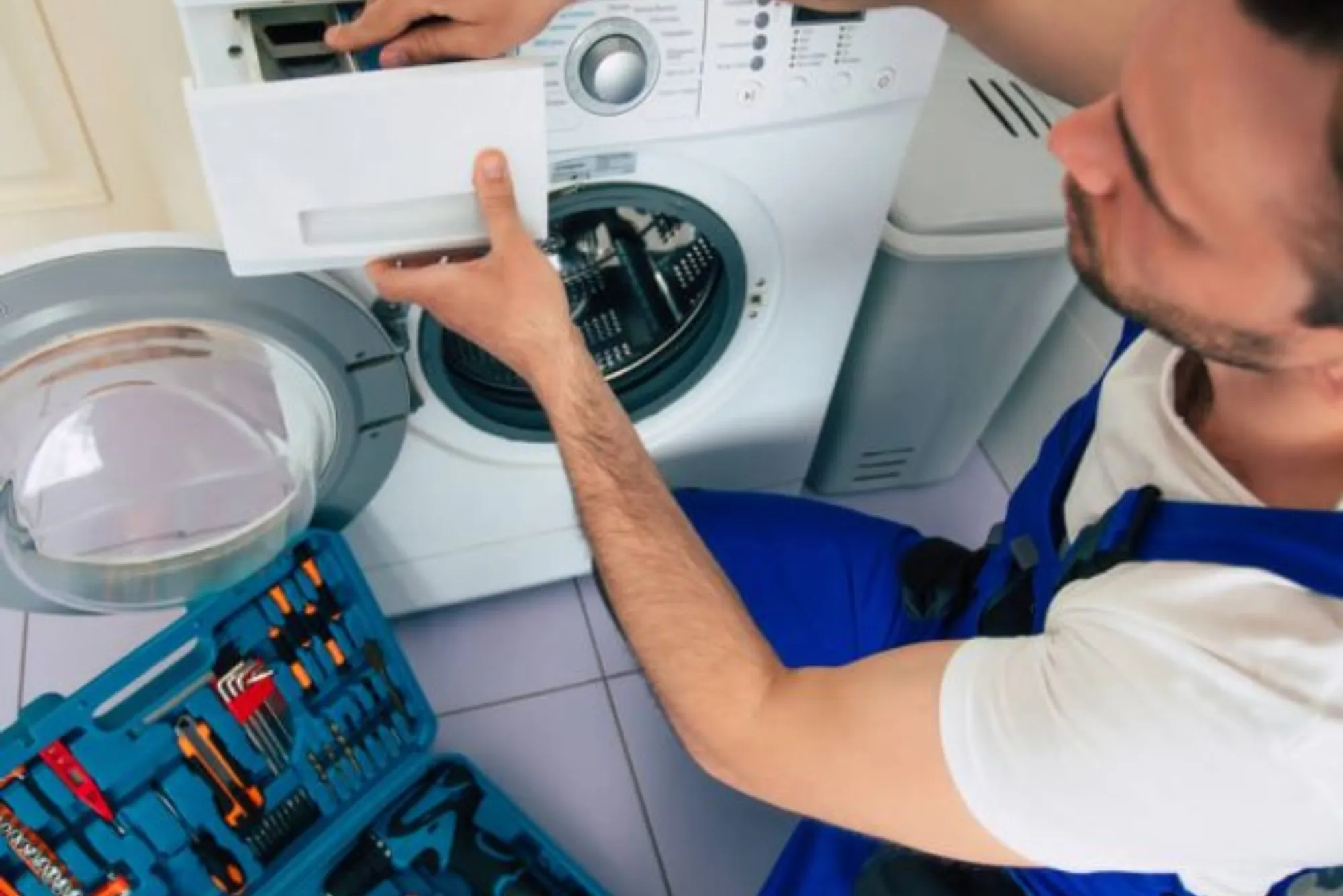In today’s fast-paced world, having malfunctioning home appliances can be incredibly frustrating. Whether it’s a gas stove repair in Abu Dhabi or a washing machine repair in Sharjah, knowing where to find the best machine repair near me is crucial. This comprehensive guide aims to provide you with detailed information on how to handle these common appliance issues, find reliable repair services, and ensure that your household runs smoothly.
The Importance of Regular Maintenance
Why Maintenance Matters
Regular maintenance of your home appliances, especially gas stoves and washing machines, can save you from unexpected breakdowns and costly repairs. Many homeowners overlook this crucial aspect, leading to inconvenient and often expensive situations.
Quote: “An ounce of prevention is worth a pound of cure.” – Benjamin Franklin
Gas Stove Repair in Abu Dhabi
Common Issues with Gas Stoves
Gas Leakage: This is a critical issue that requires immediate attention. A slight smell of gas should never be ignored.
Burner Problems: If the burner doesn’t light up or the flame is uneven, it could be due to clogged gas lines or faulty igniters.
Thermostat Issues: If your stove isn’t heating correctly, the thermostat might be malfunctioning.
DIY Troubleshooting
Check the Gas Supply: Ensure the gas supply is on and the connections are secure.
Clean the Burners: Clogged burners can affect the flame. Clean them regularly to avoid buildup.
Inspect the Igniter: A faulty igniter may need cleaning or replacement.
Professional Repair Services
For more complex issues, it’s best to contact professionals who specialize in gas stove repair in Abu Dhabi. They have the expertise to diagnose and fix problems efficiently.
Washing Machine Repair in Sharjah
Common Washing Machine Problems
Drum Not Spinning: This could be due to a broken belt or motor issues.
Water Leakage: Often caused by loose hoses or faulty door seals.
Strange Noises: Unusual sounds during operation might indicate worn bearings or foreign objects stuck in the drum.
DIY Troubleshooting
Check the Hoses: Ensure that all hoses are properly connected and not damaged.
Balance the Load: An unbalanced load can cause the drum to stop spinning. Re-arrange the clothes and try again.
Clean the Filter: Regular cleaning of the filter can prevent clogs that lead to leaks.
Check the Hoses
Why It Matters:
Hoses are crucial components of your washing machine. They are responsible for supplying water to the machine and draining it after each cycle. Over time, these hoses can become loose, damaged, or blocked, leading to leaks or poor water flow. Regular inspection can prevent major issues.
How to Check the Hoses:
- Turn Off the Machine: Always ensure that your washing machine is turned off and unplugged before inspecting the hoses to avoid any electrical hazards.
Inspect the Inlet Hoses:
Locate the water inlet hoses at the back of your washing machine. These are usually connected to your water supply.
Check for any visible signs of wear and tear, such as cracks, bulges, or leaks.
Ensure the connections at both ends (to the machine and the water supply) are tight. Loose connections can cause water to leak.
If you notice any damage, consider replacing the hose immediately to prevent potential flooding.
Inspect the Drain Hose:
The drain hose is responsible for expelling water from the machine after each wash cycle.
Check the hose for any kinks, blockages, or wear. A kinked or blocked hose can cause water to back up into the machine, leading to leaks or the machine not draining properly.
Ensure the hose is securely attached to the machine and the drain pipe.
Test the Hoses:
After securing all connections, run a small cycle to check for leaks.
If any leaks are present, turn off the water supply immediately and re-tighten the connections or replace the faulty hose.
Pro Tip: Consider replacing your hoses every 5 years as a preventative measure, even if they appear to be in good condition.
Balance the Load
Why It Matters:
An unbalanced load in your washing machine can cause the drum to stop spinning or spin unevenly. This not only affects the efficiency of your wash cycle but can also lead to excessive wear and tear on the machine’s components, including the drum and motor.
How to Balance the Load:
Understand the Issue:
An unbalanced load typically occurs when heavier items like towels or blankets are not evenly distributed in the drum.
When the machine detects an imbalance, it may stop spinning or spin at a reduced speed to avoid damaging the drum.
Distribute Clothes Evenly:
If your washing machine stops mid-cycle or spins unevenly, pause the machine and open the door.
Redistribute the clothes inside the drum so that the weight is evenly spread. For example, mix heavy items with lighter ones or place larger items like towels on opposite sides of the drum.
Avoid Overloading:
Overloading the machine can also lead to imbalance issues. Make sure you are not exceeding the machine’s load capacity as specified by the manufacturer.
If you’re washing a large load, consider breaking it into two smaller loads.
Use the Right Settings:
Some washing machines come with settings for different types of fabrics or load sizes. Ensure you’re using the correct setting for the load you’re washing to minimize the risk of imbalance.
Pro Tip: For heavy items like blankets or rugs, wash them separately to prevent imbalance issues and avoid unnecessary strain on the drum.
Clean the Filter
Why It Matters:
The filter in your washing machine is designed to catch lint, hair, and other debris during the wash cycle. Over time, the filter can become clogged, which can lead to poor drainage, water leaks, and even damage to the machine’s pump.
How to Clean the Filter:
Locate the Filter:
The filter is usually
located near the bottom front of the washing machine, behind a small access panel or flap. Some models may have it inside the drum, near the door, while others have an external filter accessible from the front or back of the machine.
Turn Off and Drain the Machine:
Before cleaning the filter, ensure the washing machine is turned off and unplugged.
Place a shallow pan or towel under the filter area to catch any residual water that might spill out when you remove the filter.
If your machine has a drain hose next to the filter, use it to drain any excess water before removing the filter.
Remove and Inspect the Filter:
Open the access panel and carefully unscrew or pull out the filter.
Inspect the filter for any debris, such as lint, coins, or small items that may have accumulated. These can obstruct the flow of water, leading to drainage issues or leaks.
Check the filter housing for any additional debris or buildup.
Clean the Filter:
Rinse the filter under warm running water to remove any debris. Use a soft brush or cloth to scrub away any stubborn buildup.
If the filter is heavily clogged, you may need to soak it in warm soapy water for a few minutes before rinsing.
Reinstall the Filter:
Once the filter is clean, place it back into its housing and secure it tightly. Make sure it’s seated correctly to avoid leaks.
Close the access panel and ensure it’s locked securely.
Test the Machine:
After cleaning and reinstalling the filter, run a short wash cycle without clothes to ensure that the machine drains properly and no leaks are present.
Pro Tip: Clean your washing machine filter at least once a month to keep your machine running efficiently and prevent any unexpected issues. Regular maintenance of the filter can also extend the lifespan of your washing machine.
Professional Repair Services
When DIY methods fail, it’s time to contact a professional service specializing in washing machine repair in Sharjah. These experts can handle everything from minor fixes to major overhauls.
Finding the Best Machine Repair Near Me
What to Look For in a Repair Service
Experience and Expertise: Always choose a service with a proven track record in appliance repair.
Customer Reviews: Check online reviews and testimonials to gauge the reliability of the service.
Warranty on Repairs: A good repair service will offer a warranty on their work, ensuring peace of mind.
Creating a Checklist
| Criteria | Details |
|---|---|
| Experience | Look for services with at least 5 years of experience in the industry. |
| Customer Feedback | Positive reviews on Google, social media, and other platforms. |
| Service Guarantee | Ensure they offer a warranty of at least 3-6 months on their repairs. |
| Availability | Check if they provide emergency services or work on weekends. |
| Affordability | Compare prices but don’t compromise on quality. |
Highlighted Paragraph: When searching for a machine repair near me, it’s crucial to consider not just the cost but the quality of service. A repair service with a strong reputation and solid experience can save you from future headaches. Always ensure that the repair service provides a warranty on their repairs, which is a clear indicator of their confidence in the quality of work.
Keeping your appliances in top working condition is essential for a smooth-running household. Whether you need gas stove repair in Abu Dhabi or washing machine repair in Sharjah, knowing where to find the best machine repair near me can make all the difference. By following the tips and guidelines outlined in this article, you can ensure that your appliances are repaired efficiently and affordably.
Remember: Regular maintenance, coupled with professional repair services, can extend the lifespan of your appliances and prevent future problems.
Dubai Repair is your go-to service provider for all types of repair needs in Dubai. Conveniently located in the heart of the city, our service center is easily accessible to residents and businesses alike. Whether you’re dealing with a broken appliance or need routine maintenance, our expert technicians are ready to assist. For precise directions and to plan your visit, you can find us on the map here. Trust Dubai Repair to deliver high-quality repair services right when you need them.


